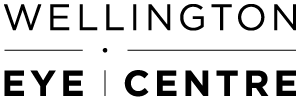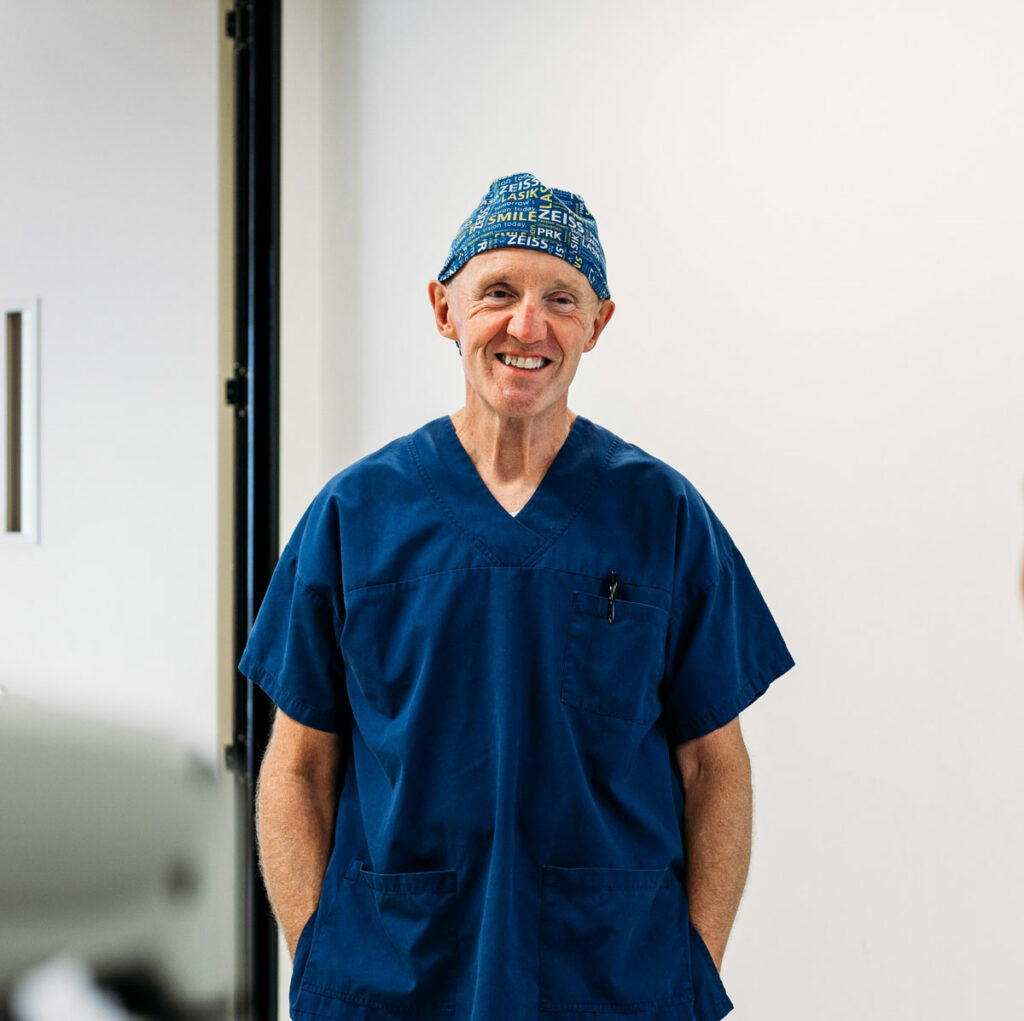
Wellington Eye Centre Ophthalmologist
Many people who would be great candidates for laser eye surgery have the misconception that they are too old. When in fact most would be suitable to have vision correction surgery, such as LASIK or SMILE, to reduce or eliminate their need for glasses or contacts.
They are usually people over the age of 40 or “boomers”. They are under the impression that once they need reading glasses, they are not suitable for laser eye surgery. Others have the idea that the benefits of laser surgery do not “last” so there is no point. Both ideas are totally wrong. There are certainly people of any age who are unsuitable, for various reasons, but those reasons are rarely age-related.
To put things into perspective I will use myself as an example. I had laser eye surgery carried out when I was 44. I had worn glasses continuously since the age of 19 and could not see clearly without glasses, either at close or far distances. Since having LASIK I have not had to wear glasses for either. Today, far too many years later, I can sit at my desk and read comfortably, see my computer screen, and easily see cars some 2 kilometres away, all without glasses. At the Wellington Eye Centre, half of our laser patients are in the 40+ age group. And we will treat people into their 60s if their eyes are otherwise normal.

Why does your age affect your suitability for laser eye surgery?
First, you can be too young to have laser eye surgery. At most laser clinics, including Wellington Eye Centre, you generally will not be eligible under the age of 20. At this age, most people wanting laser eye surgery are short-sighted and this can still be increasing. You don’t want to have laser eye surgery if your eyes are still changing because you might find yourself back in glasses after a couple of years!
What about older adults?
Between the ages of 20 and the late 30s, things are usually straightforward. If you are short or long-sighted, you are likely to be suitable for either SMILE or LASIK. You can look forward to good near and distance vision for many years after laser eye surgery. However, once you reach your 40s, things start to change again and most people will notice that their near vision is starting to deteriorate. This means they will eventually start using reading glasses or graduated lenses in their distance glasses. This is known as presbyopia.
When you get into your 60s and 70s a number of age-related eye conditions can develop which may affect your suitability for laser eye surgery.
People between the age of 40 and 65
Those who have had good vision without glasses most of their lives can find the increasing need for reading glasses extremely frustrating. Unfortunately, many people in this situation have somehow got the impression that they are not suitable for laser eye surgery. They are resigned to putting up with glasses for the rest of their life. This is definitely not the case as I explained at the beginning of this article.
The majority of people over the age of 40 can have their vision improved to reduce their dependence on glasses. At the Wellington Eye Centre, we treat those who have long sight, short sight and who only wear reading glasses.
How do you treat those over 40?
We use a procedure called Presbyond laser blended vision to improve eyesight in this age group. This involves correcting one eye to see from far to middle distance and the other eye to see from close to middle distance. The vision from each eye blends together in the middle distance which is why it is called “blended vision”. Unfortunately, it is not feasible over the age of 40 to give good distance vision and near vision in each eye, at the same time. One eye has to be adjusted to give good distance vision, the other to give good near vision.
By having Presbyond laser surgery most people can expect to totally or almost totally eliminate their need for both distance and reading glasses. A while ago we audited our results for our patients having Presbyond surgery. This included people aged between 40 and the late 60s. Of our patients, 96% did not wear glasses at all, post-surgery, while about 4% used glasses for some of their close work. But nobody was totally dependent on glasses for close work or distance vision.
Many people are concerned about their ability to cope with their eyes being focused differently. In fact, 96% of the population is able to adapt very well. We do a number of tests during your medical assessment for laser eye surgery that will confirm your suitability for Presbyond Blended Vision.
Do I have to have both eyes treated?
If you wear glasses or contact lenses full time you will likely need to have both eyes corrected to get the full benefit of blended vision surgery. If you only wear glasses for distance vision or only for reading, you may only need to have one eye corrected to give you good vision at near and distance.

Over the age of 60
At the Wellington Eye Centre, we have carried out Presbyond surgery on many people over the age of 60. They have done just as well as younger people. However, with increasing age, changes can occur in the eyes which may mean that laser eye surgery is not suitable.
In particular, many people in their 60s will start to develop a brownish discolouration of the lens of the eye; which is nuclear sclerosis. This discolouration will usually increase over time and can cause a change in the focusing and visual deterioration due to the clouding of vision it causes. Browning sufficient to affect vision is known as a cataract. By the age of 75, 50% of the population will have cataracts present in their eyes; although not all of them will need cataract surgery.
Because nuclear sclerosis has the potential for visual change and deterioration, if this is present in someone seeking vision correction surgery, they will generally be advised against having laser eye surgery. Their surgeon may recommend a procedure called Refractive Lens Exchange (RLE) instead. Also known as Clear Lens Exchange (CLE). It is very frustrating if you have laser eye surgery and your vision starts deteriorating within a couple of years. RLE avoids this problem.
What if you have another eye condition?
As we age, conditions which may affect your suitability for laser eye surgery become more common. The most common eye conditions associated with increasing age are glaucoma and age-related macular degeneration (ARMD). Glaucoma is a result of high pressure inside the eye, which damages the optic nerve resulting in loss of peripheral vision. ARMD is a degenerative process that affects the retina, the neural structure inside your eye responsible for sight. If you have either of these conditions you are likely to be unsuitable for laser eye surgery. These conditions can affect the quality of vision and result in poor outcomes from laser eye surgery. Both glaucoma and ARMD may be treated using a laser, but these are not the same as the lasers used in laser vision correction.

What do you do for someone who has cataracts or nuclear sclerosis?
As explained above, laser eye surgery is not the best choice for someone who is developing nuclear sclerosis or cataracts. In this case, Refractive Lens Exchange is the best option for vision correction. RLE is essentially identical to the surgery carried out to remove a cataract. The lens inside the eye is surgically removed and replaced with an artificial lens, called an IOL. The type and strength of the IOL are specifically selected to correct vision. Because the natural lens of the eye is replaced in RLE, the surgery is a “one-time procedure”. Your vision should remain stable for the rest of your life and you cannot develop cataracts as you get older.
As RLE is carried out in a hospital and involves surgery inside the eye, it is a bit more invasive and expensive than laser eye surgery. These issues will be thoroughly discussed with you if you are potentially having RLE surgery.
To wrap it all up, age is rarely a barrier to having vision correction surgery. If you are over the age of 20, and your eyes are healthy apart from the need for glasses or contacts, you are likely to be suitable. You can then expect to be able to reduce or eliminate your need for glasses or contacts. If you are in your 60s or older, you may be advised to have Refractive Lens Exchange instead. But the outcome you can expect is the same for either procedure.
Contact us to find out if you may be suitable!
We hope this has cleared things up. If you have any questions then don’t hesitate to get in touch either by phone on 0800 733 327 or fill out the contact form below. If you are interested in laser eye surgery then come in for a free laser suitability assessment. We offer these in Wellington, Napier and Nelson.
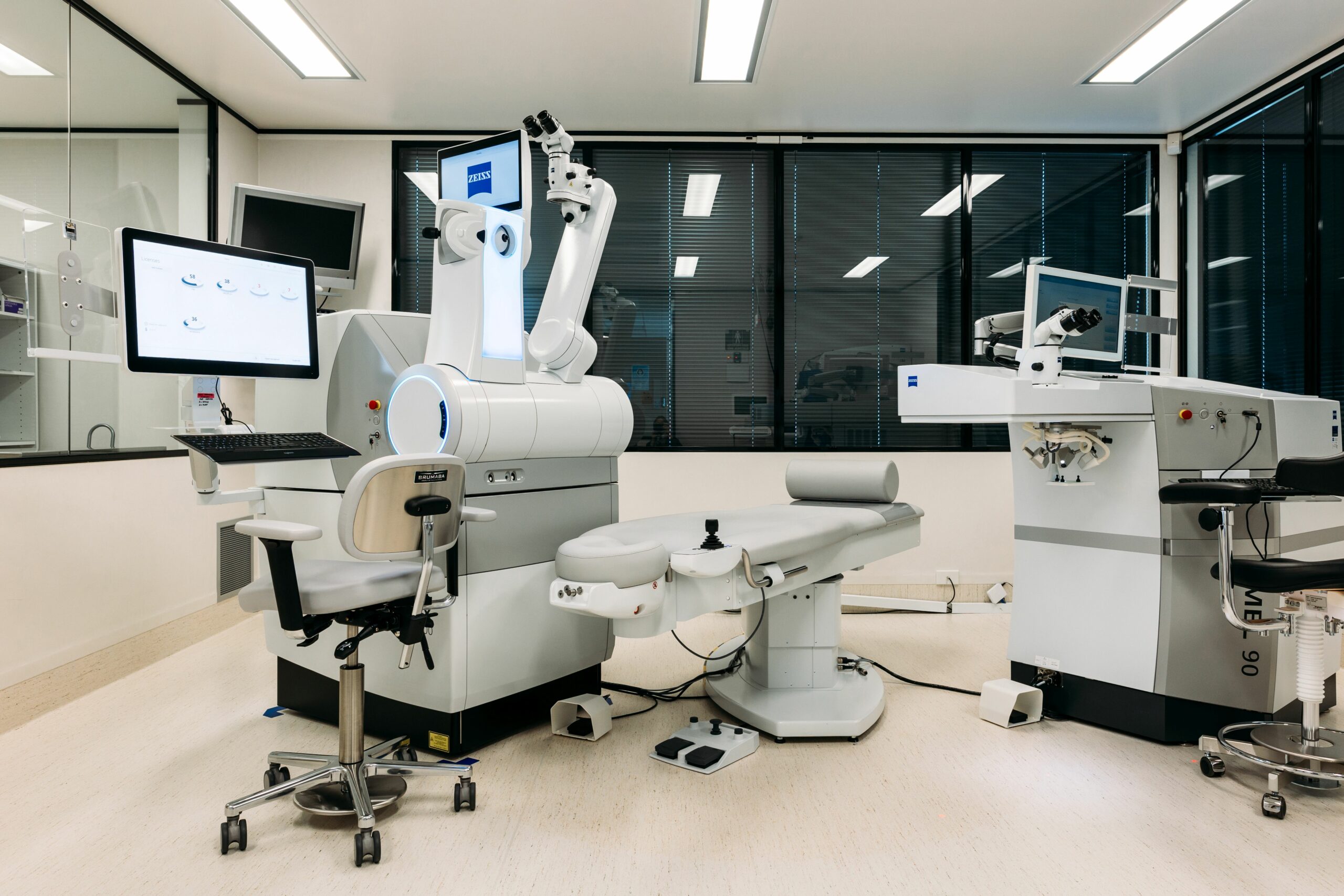
What to Expect on The Day of Surgery
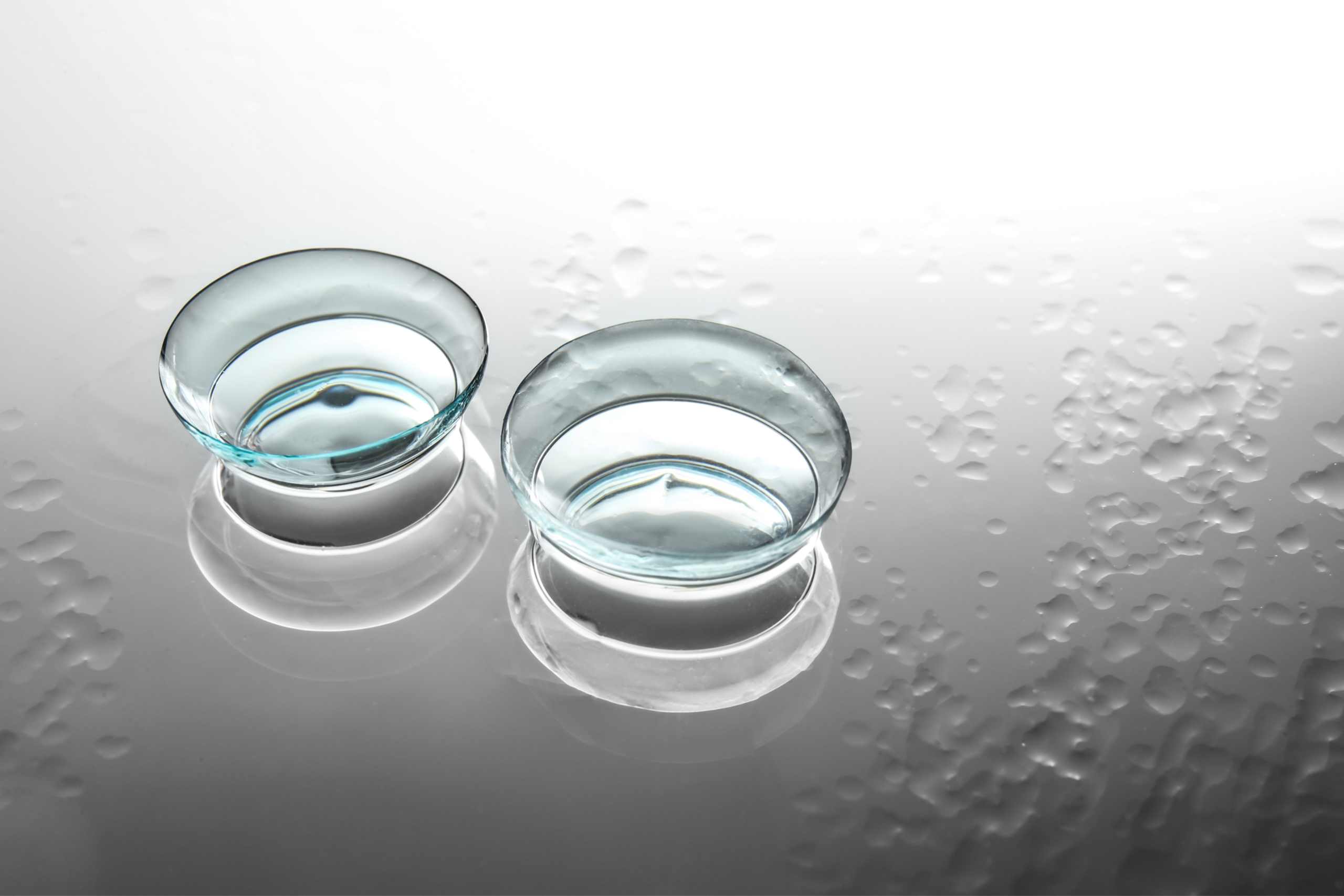
What happens when your vision after laser vision correction surgery is not what you expected?
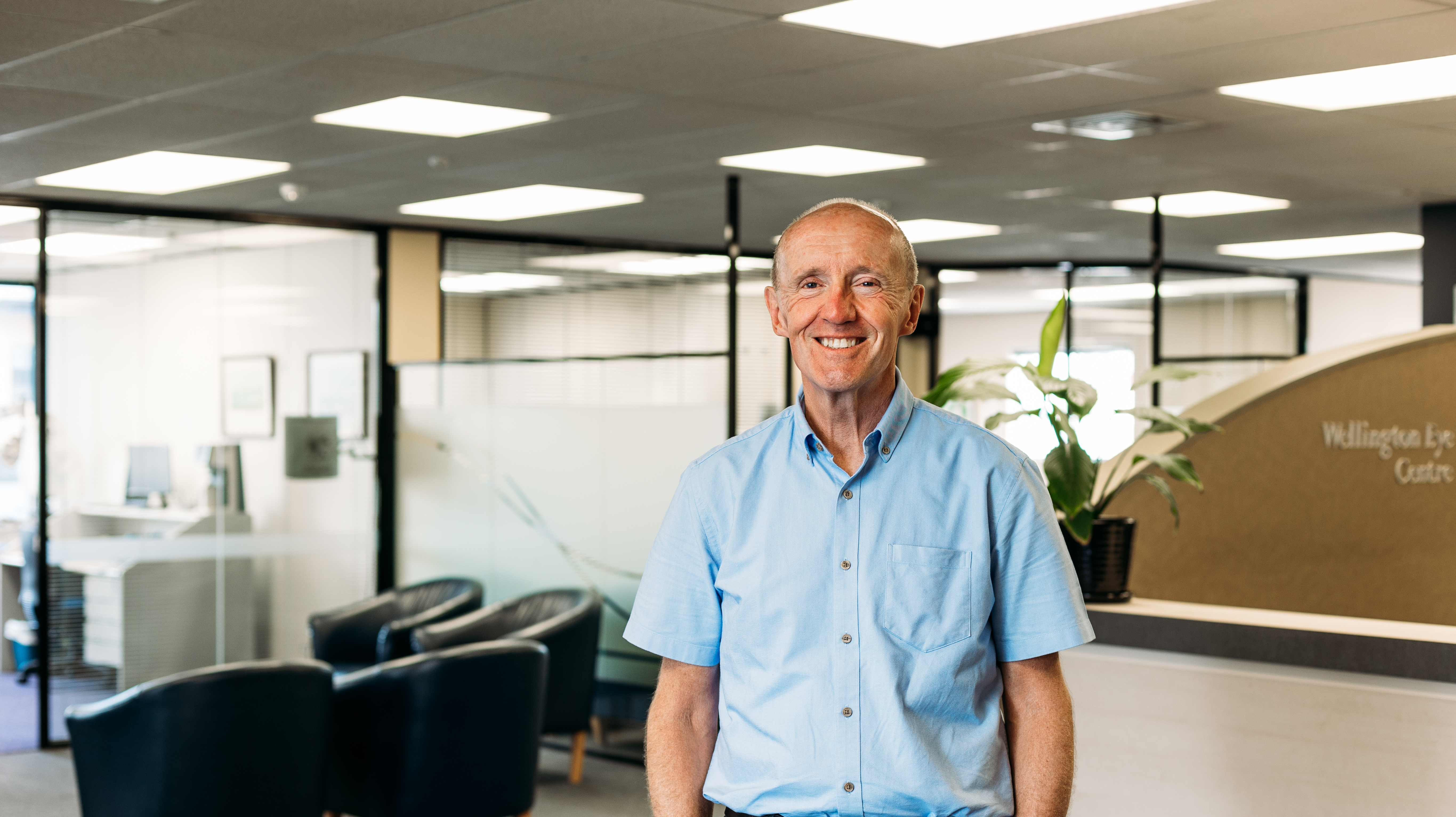
Dr Andrew Logans Innovation Achievements

Laser Eye Surgery for Sports
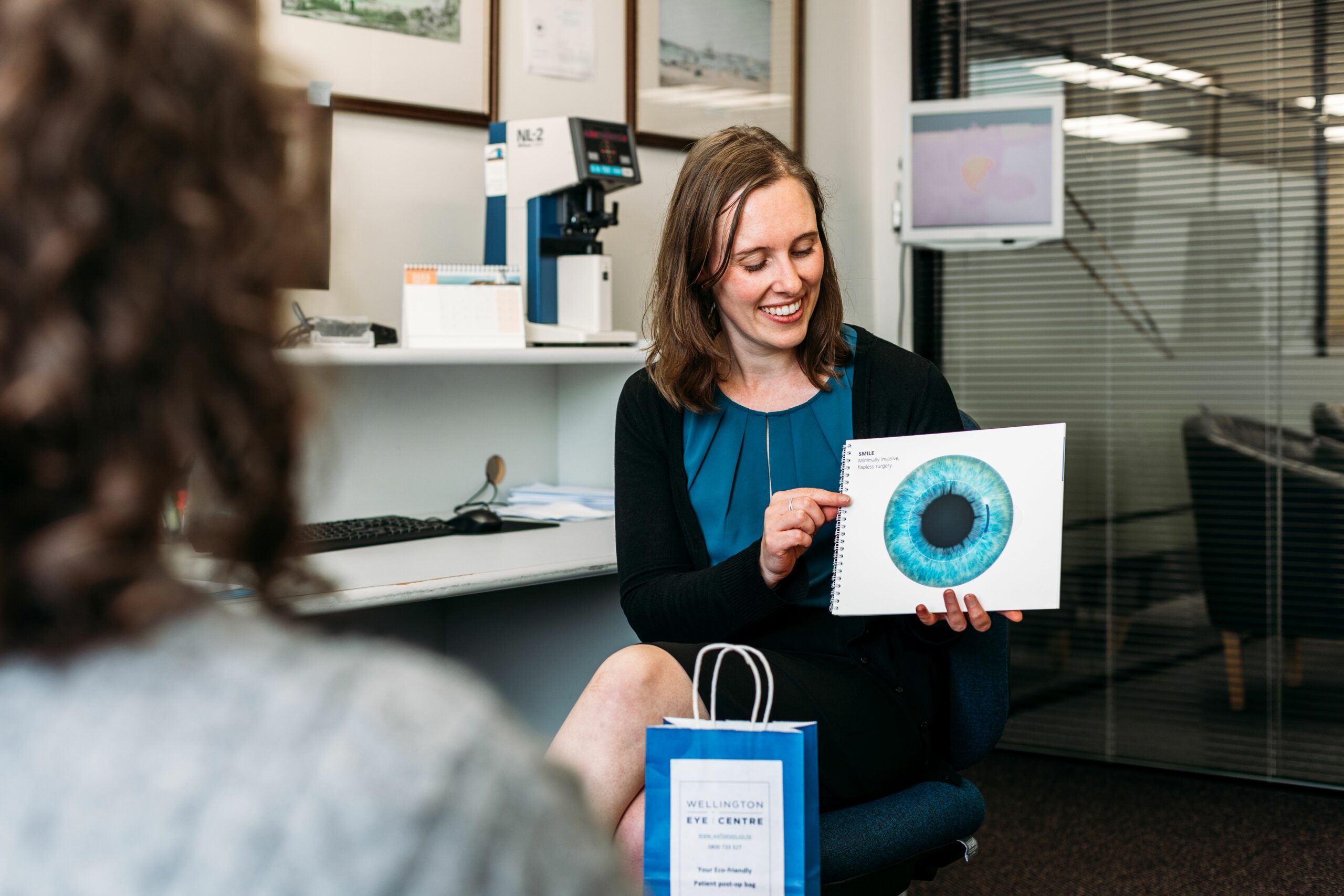
What to expect at your Free Laser Suitability Assessment at Wellington Eye Centre
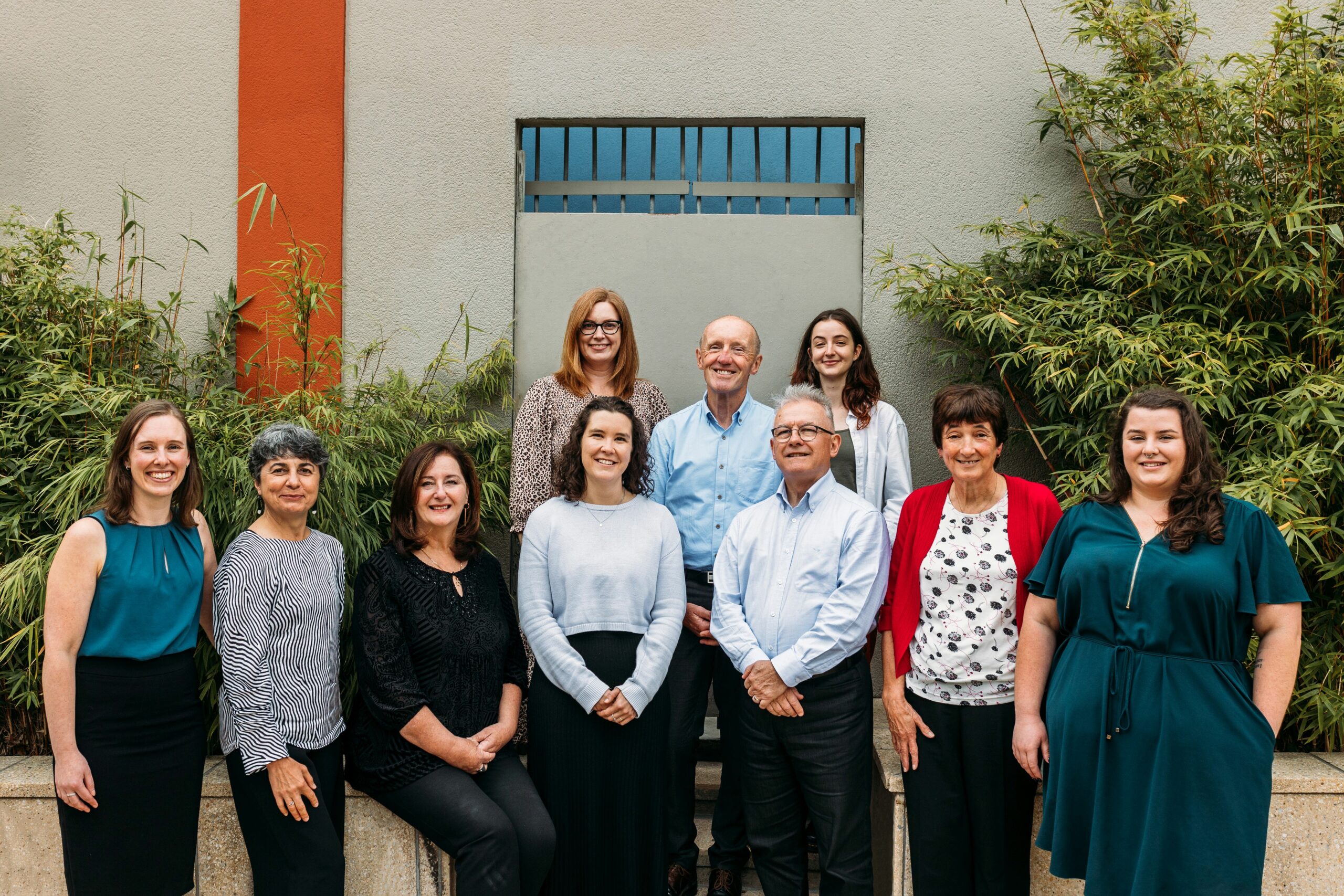
Meet The Team at the Wellington Eye Centre

Festive Season and Your Eyes

Naumi Studio Hotel Wellington

What to Expect on The Day of Surgery

